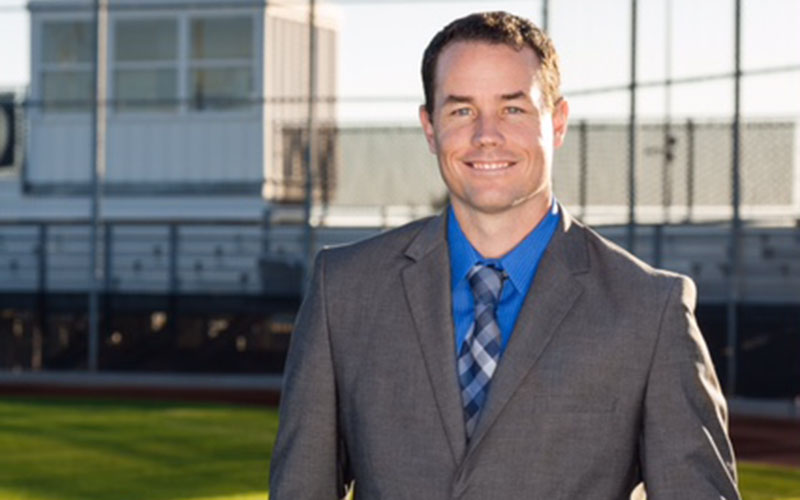PHOENIX — Jonathan Meldrum, a former offensive lineman at Syracuse, struggled through his sophomore year in college.
“I didn’t want to wake up, I didn’t want to get out of bed and I felt physically ill every single day.”
After battling depression in high school, he took antidepressants, saw counselors and therapists and eventually managed his highs and lows with coping skills he had learned.
Meldrum’s battle is not an isolated incident. Depression and anxiety affect athletes across the country, including former Arizona swimmer Justine Schluntz, who first shared her story of depression and suicidal thoughts on social media.
When researchers at Drexel University and Kean University surveyed 465 athletes at an anonymous Division I institution over three years, they “identified clinically relevant levels of depressive symptoms in nearly one-quarter of college student athletes.” It is one of the reasons ASU takes the issue of athletes and mental health seriously.
“The responsibilities and pressures that Division I student-athletes face require preventative and proactive measures to manage stress, anxiety and other emotional challenges,” said Jean Boyd, ASU’s Senior Associate Athletic Director. “Sun Devil Athletics works closely with ASU Counseling Services and other community mental health professionals to ensure that Sun Devil student-athletes have the resources necessary to address a wide range of mental health considerations.”
Schluntz shared her story on her Facebook page in 2015:
I have just left the hospital after a 10-day stay. I was admitted because I was suicidal and worried I was going to hurt myself. I have fought depression for years, but despite knowing I had depression, I did not reach out to professionals for help. Because of this, things went from bad to worse to nearly impossible to cope with. I’m not sharing this for sympathy; I am in a better position with my mental health now than I have been in a long time.
I’m sharing this because I want to tell you this: if you are struggling with depression or thoughts of hurting yourself, PLEASE, PLEASE, PLEASE seek help.
She says today that although it is important that athletes are vocal about the issues they’re facing, coaches also need to be more aware of the signs.
“Coaches are the only resources that the athletes have, and so if they’re too tentative or shy about taking a step, that athlete is going be suffering and that coach could have done something to help them,” Schluntz said
China McCarney, who is also the Founder of Athletes Against Anxiety and Depression, believes a stigma has caused this mental health issue in sports.
“In the world of athletics, there’s just such a race to be unemotional,” McCarney said. “You’re taught to not show emotions, so if you’re dealing with anything anxiety related and you show it you’re almost viewed as soft.”
Schluntz was a five-time NCAA national champion and named to the Pac-10 First Team All-Academic Team three consecutive years. She believes that the negativity often isn’t coming from peers but from their own mind. It can cause the athletes to reach a breaking point.
“As an athlete you still feel that way,” Schluntz said. “You don’t want to show vulnerability, you don’t want to show that you might not be as strong as your teammate.”
For Meldrum, he reached that breaking point his sophomore year of college. He had come off a knee injury from the previous season. The team had a coaching change and everything that could go wrong, he believed, did.
“I remember having to talk myself into going to practice every single day,” he said.
Looking back, Meldrum isn’t sure how he was able to get through those practices.
“People would hit me and I would feel like my bones would absolutely shatter,” Meldrum said. “I remember there was so many times I was over pouring water on my face to cover up the tears because my body hurt so bad.”
Meldrum couldn’t take the pain anymore. He no longer wanted to go through the grind each day.
“I didn’t want to live,” he said. “I got tired of putting this happy face on after sitting in my room and crying all day, so I had a plan to just end it all.”
Meldrum and the rest of Syracuse’s team were at Notre Dame, preparing to play in their second-to-last game of the season, when one of his coaches approached him.
“I’m literally just trying to choke down food so i can hurry and get up to my room,” he said. “He pulls me aside and he was like ‘Jonathan, whats going on?’ and all of the sudden I just broke down crying uncontrollably like some 16-year-old girl that just got dumped at prom.”
Meldrum told him what had been going on, that he had never felt this low before, and that he felt as if he couldn’t handle it anymore.
“He was like, ‘All right, lets just get through this weekend, and first thing when we get back, we’ll get you help,’ ” Meldrum said. “The next morning, Tim Neal, who was our head athletic trainer, told me, ‘When we get back I’ve got a couple people you’re gonna talk to and we’re gonna get you on medication, we’re gonna figure this out.’ ”
When Meldrum returned to Syracuse the next day he had references to see a psychologist and a counselor who monitored the different medications he was taking. He had check-ins each and every week just to make sure that he was staying on track and doing OK.
“Within three months I had gotten back to a place physically, emotionally and spiritually where I wasn’t really struggling with depression all that much anymore and I was just on cloud nine,” Meldrum said.
It was a night-and-day difference for him. Once he was able to take care of his mental health, his life improved drastically.
“Since then, I still struggle with depression from time to time, but I’m much more aware of it now,” Meldrum said. “I just don’t let myself keep spiraling and spiraling down without saying something.”
Many believe sports promotes an old-school mentality that you have to tough everything out and not show fear or emotions. This mentality creates a vicious cycle in which athletes are terrified to share their struggle because they don’t want to be looked at as weak by their peers, coaching staff or fans.
“Because they’re hiding it, they’re not getting any help and it’s just getting worse,” McCarney said. “The symptoms are getting worse and they’re not getting the help that exists out there.”

China McCarney is a former professional baseball player and founder of Athletes Against Anxiety and Depression. (Photo courtesy of China McCarney)
How players handle their depression or anxiety has a lot to do with the environment that a coaching staff creates. If a player is suffering, but is under a dictator-type coach, then they’re less likely to express their emotions, McCarney said.
“So many people are scared to seek help when the help exists and the only realistic reason for that is the whole judgmental stigma exists,” he said
Bill Cole, a leading performance psychology expert, explained that a huge motivational force for athletes and coaches is their desire to come across as a tough.
“Talking about mental health issues is the direct opposite of this,” said Cole, a prominent performance psychologist based in California. “They believe that weakness is to be avoided at all costs, and people in sport generally equate any issues with mental health as weakness.”
One of the ways McCarney believes that the stigma can disappear is by sharing struggles with others. A coach, a teammate, a teacher or a close friend can ease the burden.
“I didn’t want to talk to anybody about it,” McCarney said. “I felt ashamed and I felt weak because of the narrative that’s out there and so I was terrified to share, but that feeling after I went to my first therapy session was just one of the greatest moments ever because it was like, ‘Wow, I can talk about this and there’s no judgment.’ ”
In many ways, it isn’t that the coaches are intentionally causing athletes to feel anxious or depressed. They simply might not have the knowledge or skills to handle the situation. Schluntz didn’t know that she was experiencing depression until after her career ended. Society needs to be better educated about mental health, experts say.
“Do more than not being negative,” Schluntz said. “Be more aware of issues surrounding depression and anxiety and other mental health challenges.”
Meldrum believes that while we have come a long way with mental health issues, society still has a long way to go.
“People don’t understand depression or anxiety because they just don’t know,” he said. “And it’s not their fault, it’s just that we as a society haven’t done a good job of making people aware of this problem.”
Admitting one can be valuable.
“You should be absolutely proud of the battle that you’re fighting and continuing to live a functional life,” McCarney said.
If you or someone you know is suffering from depression or any mental health issue here are a few outlets that you can use to help.
Athletes Against Anxiety and Depression
Anxiety and Depression Association of America
National Suicide Prevention Lifeline
